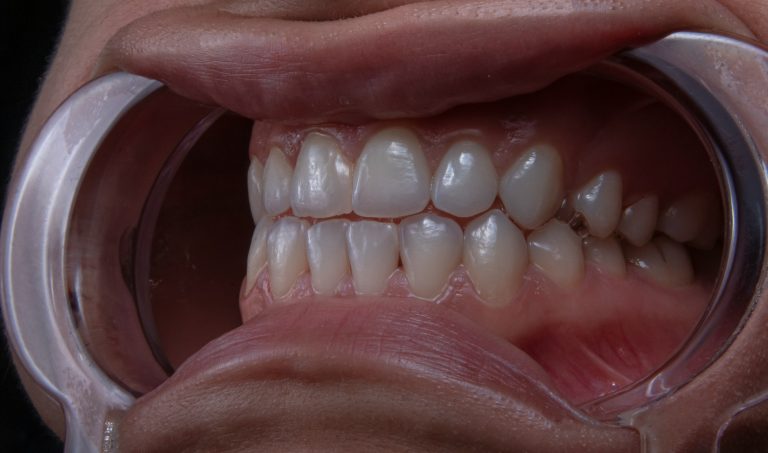What is maxillofacial physiotherapy?
Maxillofacial physiotherapy is a specialised discipline designed to treat functional and painful disorders affecting the face, jaw and neck. This therapeutic approach is based on specific re-education techniques designed to restore mobility, improve posture and relieve pain associated with temporomandibular dysfunction (TMD) or post-operative conditions.
Many patients suffering from muscular tension, temporomandibular joint (TMJ) disorders or pathologies affecting the muscular balance of the face can benefit from this treatment.

The main indications for maxillofacial physiotherapy
This speciality allows us to intervene in a number of disorders affecting the orofacial sphere, in particular :
1. TMJ dysfunction and orofacial pain
The temporomandibular joint (TMJ) plays a key role in chewing, swallowing and speaking. When it is affected, this can lead to :
- From chronic pain of the jaw, face and temples,
- From joint blockages limiting the opening or closing of the mouth,
- From joint noises such as rattling or crackling,
- A excessive tension of the masticatory muscles causing migraines and associated neck pain.
2. Bruxism and stress-related disorders
Bruxism, characterized by grinding or clenching of the teeth, is often linked to stress and can cause :
- A premature wear of teeth,
- Muscle and joint pain,
- Cervical tension and headaches.
Using relaxation and mobilisation exercises, maxillofacial physiotherapy helps to reduce this tension and restore optimum muscular balance.
3. Post-operative rehabilitation and trauma
After surgery (complex dental extractions, orthognathic surgery, facial fractures), physiotherapy helps to :
- Speed up recovery by promoting healing and reducing oedema,
- Improve joint mobility and masticatory function,
- Preventing scar adhesions and muscular compensations.
4. Facial paralysis and neurological disorders
Following damage to the facial nerve, maxillofacial physiotherapy can help with :
- La recovery of muscle tone,
- La restoration of facial expression,
- Improved coordination of facial movements.
Specific exercises are used to stimulate the affected muscles and improve facial symmetry.
5. Swallowing disorders and oro-myofunctional rehabilitation
Certain pathologies (neurological disorders, stroke sequelae, abnormalities in lingual posture) can disrupt swallowing and lead to the risk of a false route. Myofunctional re-education helps to:
- Improving language positioning,
- Facilitate swallowing and nasal breathing,
- Correct speech and phonation disorders.

Course of a maxillofacial physiotherapy session
Maxillofacial physiotherapy treatment generally comprises several stages:
- Initial assessment Analysis of history, assessment of posture and muscular imbalances.
- Manual techniques Massages, joint mobilisation and stretching to release tension and restore joint function.
- Active and postural exercises Muscular work, proprioception and functional rehabilitation.
- Personalised advice Postural hygiene, stress management and home exercises to maintain progress.
Why consult a maxillo-facial physiotherapist?
Maxillofacial physiotherapy offers a comprehensive, non-invasive approach to treating pain and dysfunction that is often poorly managed. It is aimed at anyone suffering from :
- Pain or tension in the jaw and face,
- Migraines and muscular headaches,
- Post-operative functional limitations,
- Neurological disorders affecting facial motor function,
- Speech or swallowing problems.
A care Early treatment can improve quality of life and prevent long-term complications. If you have any of these symptoms, don't hesitate to consult a specialist.






